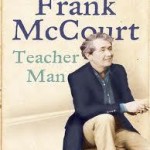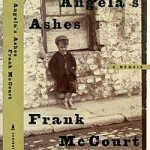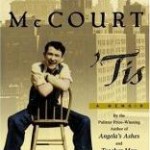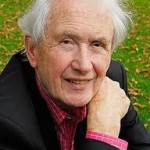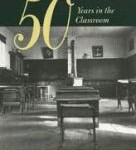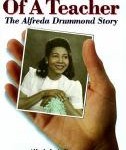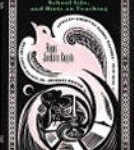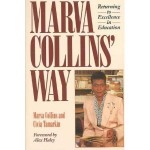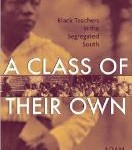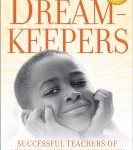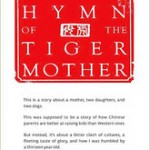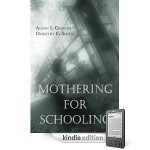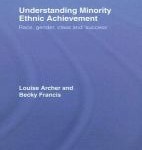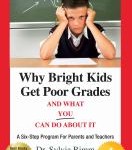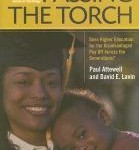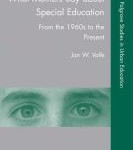Memoirs have become a hot genre in the last few years. A recent article I read claimed that memoirs comprised the largest title list in the non-fiction area of publishing, and it is growing. The reason: people are reading them.
Celebrity memoirs have always been popular. Recent memoirs written by Dick Van Dyke and Julie Andrews were well written and reached Best Seller status. Even “tell all” memoirs like My Booky Wook: A Memoir of Sex, Drugs, and Stand-Up by Russell Brand and My Horizontal Life: A Collection of One Night Stands by comedian and celebrity host Chelsea Handler are extremely popular. (Both of those books were best sellers and helped to make their authors famous.) In this type of memoir the author seems to be out to attract buyers with the use of the outrageously suggestive title.
Memoirs are not autobiographies. Memoirs are how the author remembers his or her life. They don’t have to be fact checked or footnoted with supporting documents. In a memoir the facts don’t matter except in how they fit into the memories that the author is recording. Since memoirs aren’t fact checked they tend to be vague and disputable. It is for this reason that I don’t usually read memoirs.
There is a sub class of memoirs that those in the book world call “misery memoirs”. They never interested me because they seem to have been written by author’s who are having a contest to see who can write about the most miserable horrible life ever lived. If the details of the life aren’t horrendous enough some authors have even gone so far as to make up details and get away with their lying because it is a memoir and not an autobiography. (Remember the James Frey/Oprah Winfrey controversy?) When a book starts out with “When I look back on my childhood I wonder how I managed to survive at all. It was, of course, a miserable childhood: the happy childhood is hardly worth your while. Worse than the ordinary miserable childhood is the miserable Irish childhood, and worse yet is the miserable Irish Catholic childhood.” The reader knows what is coming is pure misery, and probably asks why they should spend time reading such a book? It is with that irascible series of sentences that Frank McCourt begins the first of his three memoirs, Angela’s Ashes.
Two things happened that caused me to take a second look at McCourt and his books. I had long had in my possession a recorded version of “Angela’s Ashes” on cassette tape. (That should be some indication of how long I had that book in my possession and put off listening to it.) Then I read a short article about late blooming literary figures and learned that the oldest person to receive a Pulitzer Prize for Biography/Autobiography was Frank McCourt. He was 66 when Angela’s Ashes was published. This piqued my interest and I began to wonder about the book and the author even though the first book was more than 15 years old when I read that article. I remembered that the book had a big impact when it was published. People talked about it and the author had been a guest on CSPANN2 programs more than once. Finally, this summer, on one of my trips back to Kansas, an event for which I am inside a car for nineteen hours, I hauled that copy off my copious book shelves and listened to it. To my surprise, I liked it. I do admit that the author had a tendency to be melodramatic and crying about “poor, poor pitiful me and my family” far too much, which lead more than one critic to blame him for starting the epidemic of “misery memoirs.” Given my prejudices were so inclined in the other direction, I soon found myself engulfed in McCourt’s world. On that trip home I found myself anxious to get back in the car just so I could listen to more of the book.
The second event was a discussion I had with a graduate student who had returned to UA to learn to be a teacher and was enrolled in the “fifth year program” in the College of Education. This group of students is required to participate in a book discussion group that meets once a month. They read books about education and educational issues as well as biographies and memoirs. He stated that he really enjoyed this discussion group and when I inquired about what had been his favorite book, he replied that he liked the teacher memoirs the best. Maybe it was time for me to read one for myself?
The book works on several levels. It is written in the voice of a child. At first it consists of short choppy segments and as the author matures the length and quality of the writing improves. Then there was the voice. The recorded version was read by the author and I am sure that part of the charm of the book was found in that Irish brogue whose thickness was mitigated by fifty years of living in the U. S. It leant a degree of freshness and authenticity to the book. I was not the only person to like “Angela’s Ashes.” It was so well received that it was a best seller and stayed on the New York Times list for almost two years, and in 1997 it won both the Pulitzer Prize and the National Book Critics Circle Award.
Eventually McCourt wrote a series of three memoirs that chronicled his life. I ended up reading, or listening to, all three of them. They are tied together but each could be read alone. The first was “Angela’s Ashes” published in 1996 and details his childhood in New York City where he was born in 1930 to Irish immigrant parents. In 1936 the family moved back to Limerick, Ireland where he lived until 1949. The second book is titled “’Tis: A Memoir” published in 2000, and tells about his life after his return and re-immigration to the land of his birth, the U. S. A. In this book the reader learns about how McCourt came to be a teacher using the G.I. Bill and his wits. Basically he talked his way into New York University where he earned his English degree and met the qualifications for a teaching certificate in New York State. The third book is titled “Teacher Man” published in 2005 and recounts his career as a teacher.
In many ways I found “Teacher Man,” to be the most interesting of the three books. It is not a memoir, but it is not pedagogy either. It is about teaching – learning to teach, teaching, and what teaching meant to the author. Teaching was who he was, and without it he was lessened. For the author teaching was a noble profession and he stated so many times. All he ever wanted to be was a teacher. And a teacher he was.
McCourt taught in the New York City school system for 28 years and was named New York State Teacher of the Year and received the United Federation of Teachers John Dewey Award for Excellence in Education. All-in-all, it is quite a career for a man who never graduated from high school. McCourt died in 2007 at the age of 78.
All three of the memoirs by Frank McCourt are in the UA libraries. “Angela’s Ashes” and “Teacher Man” are at McLure Library and “’Tis” is at Gorgas Library. All three of the books are also at Tuscaloosa Public Library and that library has “Angela’s Ashes” and “’Tis” in the recorded versions. Both are read by the author and there is no doubt that his voice is an asset in the recorded versions.
Frank was not the only McCourt to write his memoirs. All of his surviving brothers have written something and three out of the four of them have written a memoir. That is lots of material coming from one family. It is also interesting to note that for most of his life Frank was not the famous McCourt. That was his brother Malachy. Malachy was and still is a New York City celebrity, sometimes actor, and well known personality. Malachy has also written two memoirs. “A Monk Swimming” in 1998 and “Singing My Hymn Song” in 2000. Both of these books are at Gorgas Library.
If you would like to check these books out just come to McLure library and get them or call 348-6055 let us put them on the hold shelf for you. They should provide hours of pleasant reading and perhaps help those of us who are teachers to remember why we teach and how hard it was to get to be a good teacher. It is interesting to note that McCourt never thought of himself as an outstanding teacher. He said more than once that it took him five years in the classroom to learn the rudiments of teaching and that it took him the rest of his 30 year career to learn to teach. Even at the end of his teaching career he was still learning and writing his memoirs was part of that learning.
Even though these books are founding blocks in the “misery memoirs” genre and the first one is now more than fifteen years old, they might be just the thing for the teacher who is wondering if teaching is worth it. For a series of “misery memoirs” I found these books surprisingly uplifting. Perhaps you will as well.
